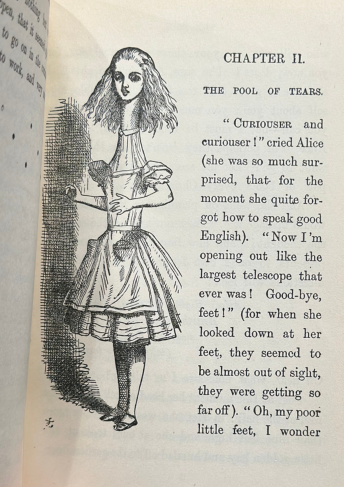‘Yo soy un patriota poético, un nacionalista de las gredas de Chile’
Mariano Latorre, Pedro Prado, y mi Propia Sombra [Corrected typescript].
[N.p., Santiago: n.d., 1962].
Price: $7,500.00
About the item
Published: Discursos (Editorial Nascimiento, 1962). Carbon typescript, corrected in blue ink and typing. 24 pp., numbered 1-14, 14a, 15-23. 4to (8-1/2 x 11). ‘Yo soy un patriota poético, un nacionalista de las gredas de Chile’. Some marginal wear to first leaf; last leaf is tipped to another sheet (toned). Very good.
Item #324526
Yo llegaba de la lluvia sureña y de la monosilábica relación de las tierras frías.
(I come from the southern rains, and the monosyllabic exchanges of the cold lands.)
Typescript of the address of poet Pablo Neruda’s (1904-1973) to the Facultad de Filosophia y Educacion at the Universidad de Chile upon his appointment to the university in March 1962. This is a discursive and wide-ranging contemplation of Chilean authors Mariano Latorre and Pedro Prado, the question of influence, and the history of Latin America and its place in the world. In resonant cadences, Neruda singles out the clarity of Latorre and “his great wish to turn us towards the ancient essence of our land”, while noting that for the taciturn adolescent, it was the directness and “conversación” of Prado, “the joyous maturity of his understanding of nature, his perennial philosophical rambling, made me comprehend the possibilities of association or society, the expressive ccommunication of intelligence”.
Neruda quotes an extended passage from La Joie Rousse of Appolinaire, and mentions the wandering nature of the poet’s profession, and the powerful emotion he felt when saying his poems in remote mining camps, slums, and before the longshoreman’s union, to see the audience of workers listen attentively. Many poets and writers are mentioned, Garcia Lorca during a discussion of the creative process, as well as Rimbaud and Baudelaire.
He talks of seeing the first car and the first airplane in his youth, and notes that the world has changed, and so his poetry has changed.
“Yo soy un patriota poético, un nacionalista de las gredas de Chile” (I am a patriotic poet, a nationalist of the clay of Chile).
Neruda turns to world affairs: “En America latina temblaron los tiranos. Cuba proclamó su inalienable derecheo a escoger su sistema social” (In Latin America, tyrants tremble. Cuba proclaimed its inalienable right to change its social system).
A substantial and powerful essay. Pablo Neruda was awarded the Nobel Prize in literature in 1971.

![Mariano Latorre, Pedro Prado, y mi Propia Sombra [Corrected typescript]](https://jamescumminsbookseller.cdn.bibliopolis.com/pictures/324526.jpg?width=768&height=1000&fit=bounds&auto=webp&v=1638815026)
![Mariano Latorre, Pedro Prado, y mi Propia Sombra [Corrected typescript]](https://jamescumminsbookseller.cdn.bibliopolis.com/pictures/324526_2.jpg?width=768&height=1000&fit=bounds&auto=webp&v=1638815028)
![Mariano Latorre, Pedro Prado, y mi Propia Sombra [Corrected typescript]](https://jamescumminsbookseller.cdn.bibliopolis.com/pictures/324526_3.jpg?width=768&height=1000&fit=bounds&auto=webp&v=1638815028)
![Mariano Latorre, Pedro Prado, y mi Propia Sombra [Corrected typescript]](https://jamescumminsbookseller.cdn.bibliopolis.com/pictures/324526_4.jpg?width=768&height=1000&fit=bounds&auto=webp&v=1638815028)
